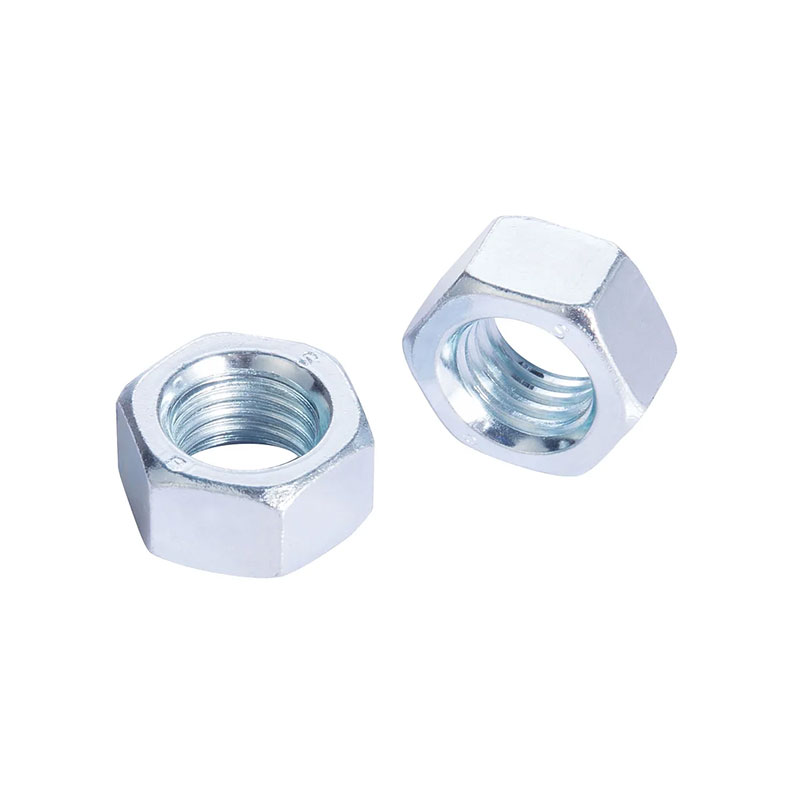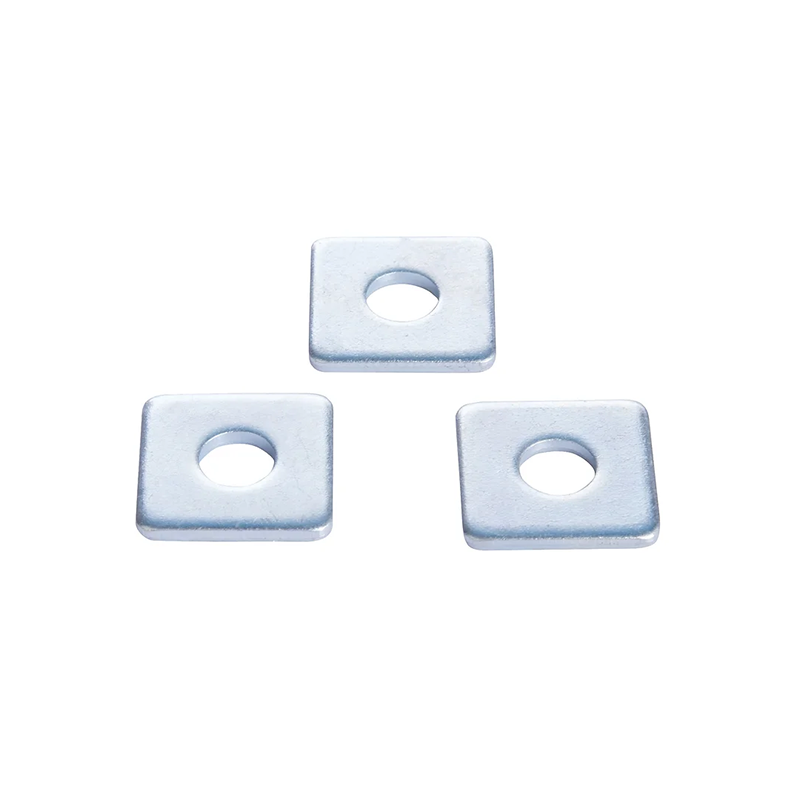How Do Sleeve Anchors with C-Hook Type Ensure a Secure Installation in Concrete and Masonry?
 2024.12.18
2024.12.18
 Industry news
Industry news
1. Expanding Sleeve Mechanism
The expansion mechanism of Sleeve Anchors with C-Hook Type is a crucial feature that ensures a secure installation in concrete, masonry, or other hard materials. When the anchor is inserted into the pre-drilled hole, tightening the bolt or fastener causes the sleeve to expand outward. This expansion creates friction against the sides of the drilled hole, which firmly anchors the sleeve in place. The sleeve is typically made from durable materials like steel or stainless steel, which have a high resistance to wear and stress, ensuring the anchor’s longevity.
The expansion of the sleeve significantly increases the surface area of the anchor in contact with the material. This broader contact area helps distribute the force exerted on the anchor across a larger region, which reduces the risk of the anchor pulling out of the hole or damaging the surrounding material. In concrete, where stress can easily cause cracks, the expansion mechanism minimizes the chances of weakening the surrounding structure, making it an ideal solution for heavy-duty applications. This reliable hold is essential for installations requiring long-term durability and resistance to movement or vibration.
The expanding sleeve helps create a tight fit, which eliminates any gaps between the anchor and the material. This tight fit prevents the anchor from shifting, even under heavy load or tension, ensuring that the installation remains secure over time. The tightness of the expansion is crucial in ensuring that there is no relative movement between the anchor and the substrate, which could otherwise lead to loosening over time.
2. C-Hook Design for Secure Fastening
The C-Hook design of the sleeve anchor adds another layer of security and makes it particularly well-suited for a variety of applications that require secure fastening. This unique hook-shaped feature is positioned at the top of the sleeve, where it serves as an attachment point for bolts, rods, or other connectors. Once the sleeve anchor is installed, the C-Hook creates a physical barrier that prevents the bolt from disengaging, providing a stable and secure hold for suspended or hanging objects.
One of the key advantages of the C-Hook design is that it offers flexibility and versatility in securing objects. The hook helps distribute the load applied to the anchor across a broader area, which reduces the stress on any single point of contact. This load distribution prevents the fastener from slipping out of place, even when subjected to high tension or heavy loads. In scenarios where equipment, piping, or other structural elements need to be supported, the C-Hook ensures that the fastener stays securely in position, regardless of external forces.
The C-Hook helps facilitate easier installation and removal. The hook allows for quick attachment and detachment of objects, making the anchor ideal for applications where components may need to be adjusted or relocated periodically. Whether securing electrical panels, pipe supports, or suspended equipment, the C-Hook design ensures that the fastening process is both reliable and efficient, saving time and reducing the risk of installation errors.
3. Firm Anchoring in Hard Materials
Sleeve Anchors with C-Hook Type are designed specifically for anchoring in hard materials such as concrete, brick, and masonry. These materials are often used in construction due to their strength and durability, but they also present challenges when it comes to securing objects. The anchor’s ability to create a firm hold in these dense materials makes it an indispensable solution for many industrial and commercial applications.
The sleeve anchor’s unique expansion feature is critical for achieving a strong, lasting connection with concrete or masonry. As the bolt is tightened, the sleeve expands, pressing against the walls of the drilled hole. This expansion forces the anchor to grip the substrate firmly, creating a tight, friction-based bond. The anchor's ability to resist both pull-out and shear forces is essential in environments where high tension and heavy loads are common. This makes it suitable for securing machinery, structural components, or other heavy objects that need to remain in place under substantial force.
The materials used in the construction of C-Hook sleeve anchors are selected for their durability and resistance to corrosion. Stainless steel, zinc-plated steel, and other weather-resistant materials ensure that the anchor can withstand harsh conditions, including moisture, temperature fluctuations, and exposure to chemicals. This makes sleeve anchors a great choice for both indoor and outdoor applications, where they may be exposed to extreme environmental conditions.
4. Versatility and Load Distribution
One of the standout features of Sleeve Anchors with C-Hook Type is their versatility. These anchors are used across a wide range of industries, including construction, industrial machinery, and even residential applications. Whether you need to secure hanging objects, attach shelving units, or support heavy pipes, C-Hook sleeve anchors provide a reliable solution.
The key to their versatility lies in their ability to distribute loads evenly. When an object is secured using a C-Hook sleeve anchor, the force exerted on the anchor is spread across a large surface area of the substrate. This distribution reduces the risk of localized stress concentrations that could cause the material to crack or weaken. For instance, when installing heavy-duty equipment, the anchor’s ability to distribute the load ensures that the surrounding concrete or masonry remains intact, without suffering from stress-induced damage.
This even distribution of load makes the sleeve anchor ideal for situations where the load may fluctuate, such as in suspension systems, pipe supports, or shelving units that carry variable weights. By securing objects more evenly, the sleeve anchor helps to maintain stability even under dynamic loads. This is especially important in applications like seismic or vibration-prone environments, where stability and security are crucial.
The flexibility of the C-Hook design allows it to adapt to a variety of fasteners and bolts. Whether you need a small fastener for lighter applications or a larger one for heavy machinery, the C-Hook sleeve anchor can accommodate a wide range of connection types. This versatility makes it a go-to solution for engineers and contractors who require a reliable fastening system in different project scenarios.
5. Quick and Efficient Installation
Sleeve Anchors with C-Hook Type are highly valued for their straightforward and efficient installation process. In many construction and industrial settings, time is of the essence, and installers need a reliable and fast way to secure objects. With C-Hook sleeve anchors, the process is simple and can be completed quickly with minimal tools and effort.
The installation begins by drilling a hole into the concrete or masonry. Once the hole is ready, the anchor is inserted into the hole, and a bolt or fastener is tightened into the internal threads of the sleeve. As the bolt is turned, the sleeve expands, creating a tight fit inside the hole. This expansion locks the anchor into place, ensuring a secure hold that requires no additional components or specialized tools.
The ease of installation also reduces the chance of installation errors, which can be costly in terms of time and resources. The C-Hook sleeve anchor’s straightforward design means that even non-expert installers can quickly achieve a secure connection without the need for advanced technical skills. This is particularly beneficial on construction sites or in industrial environments, where projects must move forward efficiently and without delays.
Because the installation is quick and requires minimal effort, it reduces labor costs. Workers can install multiple anchors in a short amount of time, speeding up the overall construction or assembly process. This efficiency also helps reduce project timelines, ensuring that tasks are completed on schedule.
6. Durability in Harsh Environments
Durability is a critical factor in the performance of fasteners used in construction and industrial settings. Sleeve Anchors with C-Hook Type are designed to withstand the harsh conditions commonly found in these environments. Concrete and masonry are frequently exposed to moisture, temperature variations, chemicals, and heavy machinery, all of which can cause wear and tear on fastening systems. C-Hook sleeve anchors are built to endure these stressors and maintain their integrity over time.
Made from materials such as stainless steel, zinc-plated steel, or other corrosion-resistant alloys, C-Hook sleeve anchors are highly resistant to rust and corrosion. This makes them suitable for both indoor and outdoor use, where they may be exposed to rain, snow, or other environmental factors that could weaken other fasteners. In addition to moisture, these anchors can withstand high temperatures, ensuring that they perform reliably even in extreme heat or cold.
The construction of the sleeve anchor is also designed to resist mechanical stresses, including vibrations and impact. This is particularly important in industries such as construction, mining, or manufacturing, where the anchors may be subjected to constant movement or heavy loads. The strong, durable materials and the expansion mechanism ensure that the anchor remains securely in place, even under tough conditions.



 English
English русский
русский











 Products
Products Tel: 86-574-62101087
Tel: 86-574-62101087 E-mail:
E-mail:  Add: Xiaocao 'e Binhai Industrial Park, Yuyao, Zhejiang, China
Add: Xiaocao 'e Binhai Industrial Park, Yuyao, Zhejiang, China